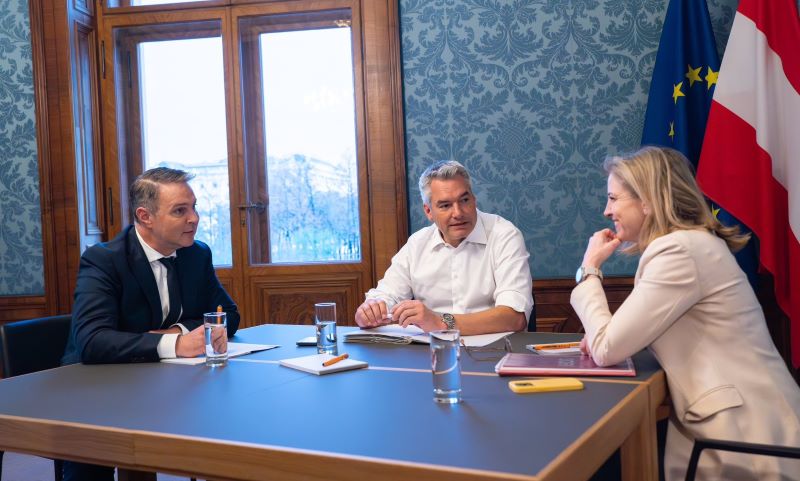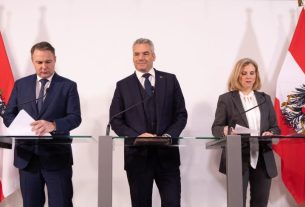Austria’s coalition leaders—ÖVP, SPÖ, and NEOS—held an intensive nine-hour crisis meeting on Friday to address escalating tensions over budget policy, ultimately averting a political breakdown before their government formally begins.
The negotiations, centered on Austria’s €24 billion budget shortfall, revealed stark divisions. The SPÖ continues to push for revenue-focused solutions, including new taxes and levies, while the ÖVP and NEOS firmly advocate addressing the deficit exclusively through spending cuts.
The Friday talks, attended by Chancellor Karl Nehammer, SPÖ leader Andreas Babler, and NEOS chief Beate Meinl-Reisinger, culminated in an agreement on a seven-year fiscal consolidation plan tied to deficit procedures, offering Austria significant flexibility. This consensus diffused immediate tensions and was hailed as a breakthrough.
Babler described the meeting as “transformative,” highlighting progress on budget consolidation while underscoring the need for further steps, particularly on cost-of-living issues. Nehammer framed the outcome as part of a broader “comeback for Austria,” emphasizing economic recovery and competitiveness. Meinl-Reisinger praised the agreement and shifted focus to drafting a “dual budget” starting Saturday, stressing bold initiatives as essential for Austria’s future.
While significant hurdles remain, the agreement signals a fragile but pivotal unity among coalition partners, offering cautious optimism for the legislative term ahead.





